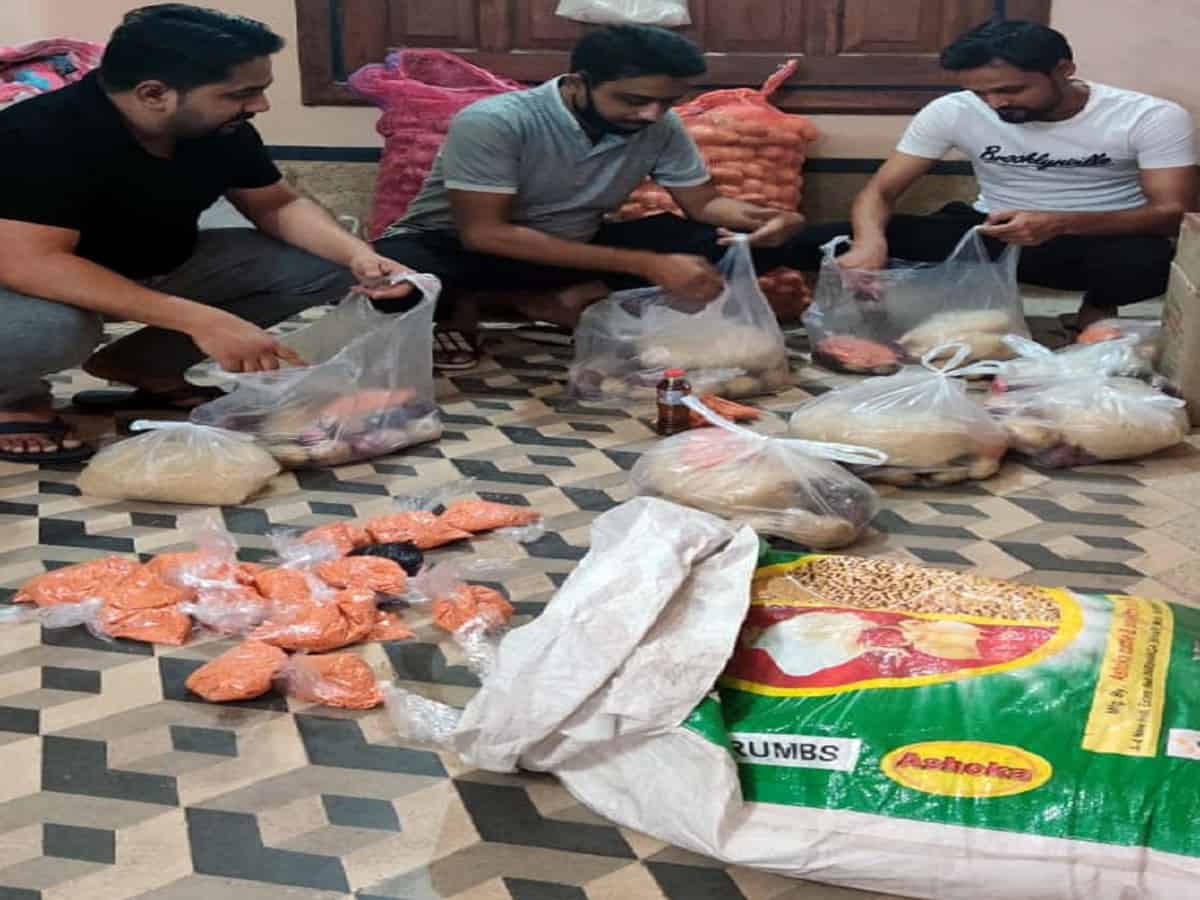Dhanbad: While organisations and indivisuals are leaving no stone un turned to do the needful in these tough times, Indian cricketers too have played their role help to poor and needy Indians.
Jharkhand spinner Shahbaz Nadeem, and Sheldon Jackson became lockdown heroes. Shahbaz who made his Test debut last year, helped 300 families of daily wage earners in Dhanbad with rice, wheat flour, oil, pulses and other essential items.
“I have stayed in Dhanbad since I was small. I know a lot of people here, most of whom are daily wage earners. When this lockdown was announced suddenly, I knew most of them would not have enough money to feed their families,” Shahbaz said Harish Kotian of Rediff.com
“My brothers-in-law and I are helping poor families here. When we started, we distributed 5 kilos of rice, wheat flour, dal, oil, onions, potatoes to around 50 families,” says Shahbaz.
“Gradually the number of families we helped kept increasing. We now help around 300 families. I live in Kolkata for most part of the year and there I helped around 80 families,” adds Shahbaz.
“It feels good because we have seen them for so many years and they are part of your neighbourhood. They don’t have any work at the moment so they are unable to feed their families. If you can help them in such troubled times, it is good,” he added.
“Whatever we have given them should last them around 15 to 20 days and once this lockdown is over, then we will see how to help them further,” he said further.
“I have ensured that they don’t venture out of their homes, breaking the coronavirus chain,” Shahbaaz said.
“My brothers-in-law Nadeem Akhtar and Tasleem Arif, who were born in Dhanbad, help me with the distribution of the essentials because they know this place and they know the people who need it the most,” he adds.
“It is very important to help each other in these tough times. If you can help them, then life will become easy for everyone. If they don’t have anything to eat then, they are bound to come on the road to try and arrange something,” Shahbaz explains.
“If you can help them by providing them food, then they will follow the government’s order of staying inside their houses. This will help to break the coronavirus chain because if they don’t step out then the virus won’t spread,” he says.
Sheldon Jackson
Sheldon Jackson, who was part of Saurashtra’s Ranji Trophy winning campaign, played his role in Bhavnagar. He not only helped people in need but also animals who have been left to fend for themselves following the 21-day lockdown imposed across the country.
“I give them food which will last them a couple of days. It is not possible to go every day as you don’t get all the products you need because of the lockdown,” Sheldon says.
“It’s my family and me who do it. Some of these people don’t have any resources, so we buy them biscuits, snacks, milk, buttermilk, water — anything that can come handy when they feel hungry,” Sheldon adds.
“These people have come from their villages to the cities in search of work. Since everything is closed, they don’t know what to do,” he adds.
“Whenever I see a hungry animal, if I have anything handy I feed it. My wife feeds cows a lot. I live outside Bhavnagar, so a lot of stray dogs roam around,” he says, adding, “It is not accessible for people to come out here and feed them. I always target such areas so I can feed the animals.”
Videos of Sheldon handing out food packets to migrants in Bhavnagar have gone viral and inspired many to do the same.
Shahbaz Nadeem and Sheldon Jackson may not be enjoying the fan following that our top cricketers do, but in these tough times they have have worked as Lockdown Heroes who delivered relief and solace to scores of Indians.
“As a cricketer it is your responsibility,” says Shahbaz. “If people around you are struggling, then you should come forward to help.”
“It gives us satisfaction that we have done something for the country,” Shahbaz adds. “There are a large number of daily workers and if people can help even one or two families, then it will be good in these tough times.”
“It is important to help each other,” says Sheldon, “because today if you are helping someone then tomorrow knowingly or unknowingly that will come back to you.”
“When I went to feed these people for the first time, some of them didn’t have food for three days,” he adds. “There were ladies who started crying.”
“What I do on the field, it is happiness and what I do over here there is a lot of pride because it helps people who don’t know when and where they will get their next morsel.”

